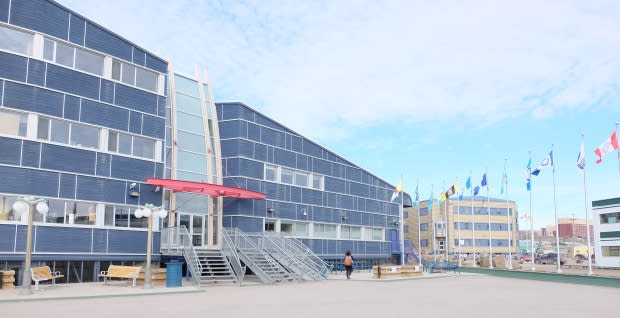Nunavut government union slams rule that staff burn holidays in quarantine
The Nunavut Employees Union is criticizing the Government of Nunavut for mandating its public servants use their annual leave to quarantine for two weeks before returning to Nunavut.
In a letter to sent to members and posted online last week, union president Bill Fennell called the decision a "slap in the face" for public servants, and said the government isn't consistent about who has to isolate and who doesn't.
"The NEU supports mandatory quarantine," Fennell writes. "We also support consistency and fairness."
Fennell said he is calling on the territorial government to change the policy, which he said "arbitrarily [forces] their indeterminate employees to use their annual leave to cover time spent in the hubs while allowing others to skip quarantine completely."
Any residents coming back to Nunavut who are not considered essential workers are required to quarantine in certain hotels contracted for this purpose by the territory.
Essential workers are not required to isolate when coming into Nunavut. They are required to physically distance and stay where they are living when not working. As of Aug. 28, 2,462 essential worker travel requests had been approved by the Department of Health.
Politicians are also allowed to skip the hotel quarantines for work travel.
As of late August, the territory has spent over $31 million to quarantine residents, including medical travellers, and non-resident construction workers.
Human Resources says policy won't change
The government of Nunavut said it will not be responding to the union's letter.
"The NEU hosts its own website and is able to post whatever it wants. The [territorial government] does not respond to website postings," Sheila Kolola, deputy minister for the Department of Human Resources, said in an emailed statement.
The department said employees are allowed to ask their managers in advance to work remotely from the isolation hotels.
"If approved, they will be expected to work their regular hours and will not need to take annual leave or leave without pay," Kolola said.

"For as long as the isolation sites are in place, [government] employees who voluntarily travel outside of Nunavut will also need to request annual leave for the time spent in isolation sites, or request approval from their department to work remotely while in the isolation site," she said.
This policy has been communicated with employees since isolation sites were put in place by the chief public health officer, she said.
Fennell said government workers began making complaints about the policy back in March. At that time, Nunavut public servants who could work remotely did work from home during spring COVID-19 shut downs but have been back to work since June.
"They were able to work from home there, but now they're not — what changed?" Fennell said to CBC.
Union asks for 'a break' for indeterminate health workers
Fennell said some health-care staff are threatening to quit. He says health staff worked long hours at the beginning of the pandemic and now they deserve a break.
"Nurses are needed all over this country and they're not being treated this way anywhere else," he said. "I know some health-care professionals have left the territory just because of the injustice."
Fennell said it is unrealistic to ask everyone to stay in the territory, and that people who do leave shouldn't be penalized. He said workers could be using time in lieu or special leave to cover quarantine.
"The GN employees who are forced to quarantine and use their annual leave to do so are the same people who have chosen to make Nunavut their home and contribute to our communities and economy," he said.
Fennell said he hopes the policy will change, but from what he's been told, it's a "non-issue" for the government.
In Nunavut, public servants start off with three weeks of vacation for the first two years in their jobs.
"To use their annual leave it's just not fair when others are waltzing right through and not even stopping at the hub," Fennell said.
The issue is not covered by the collective agreement, Fennell said.

